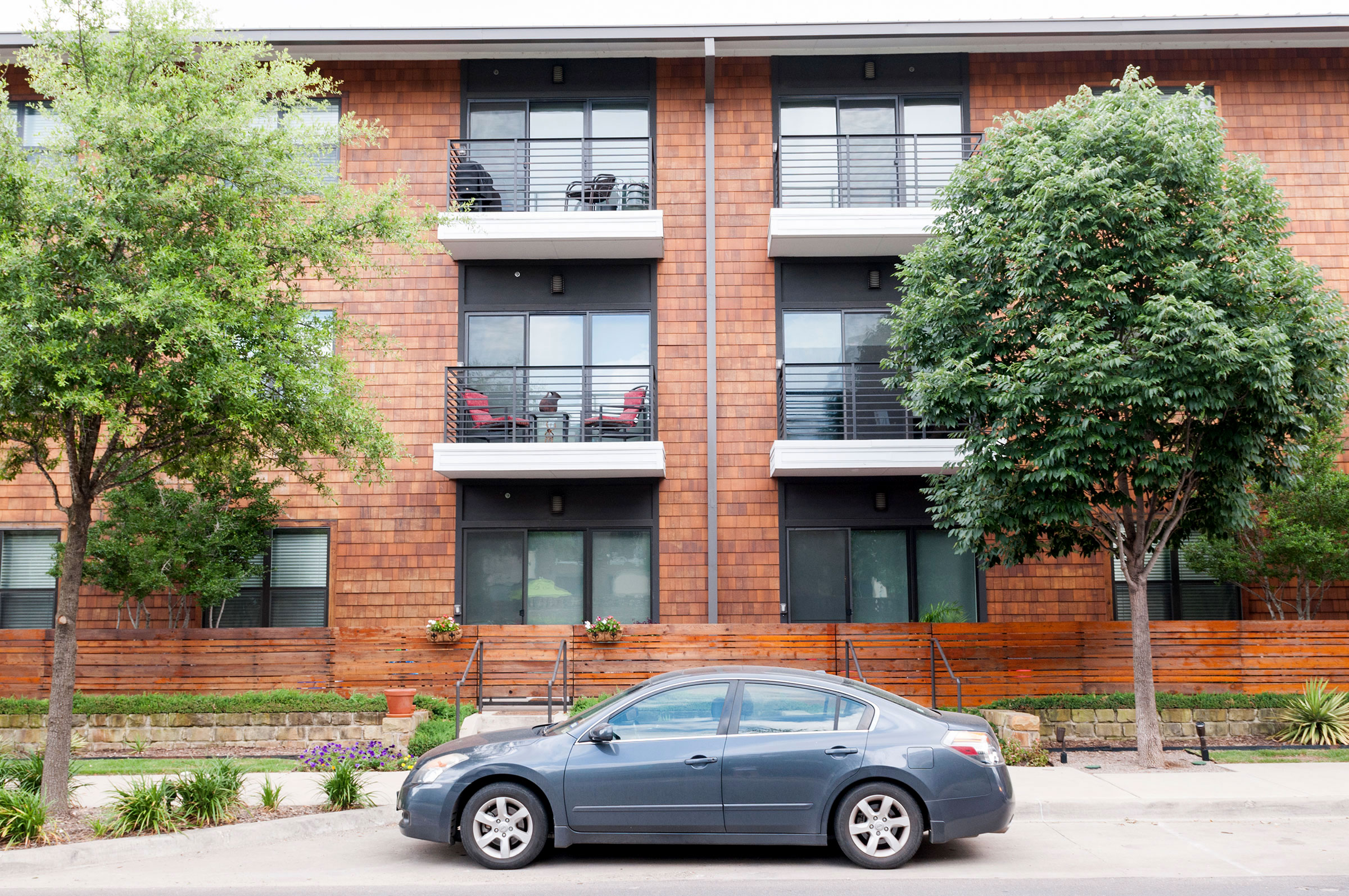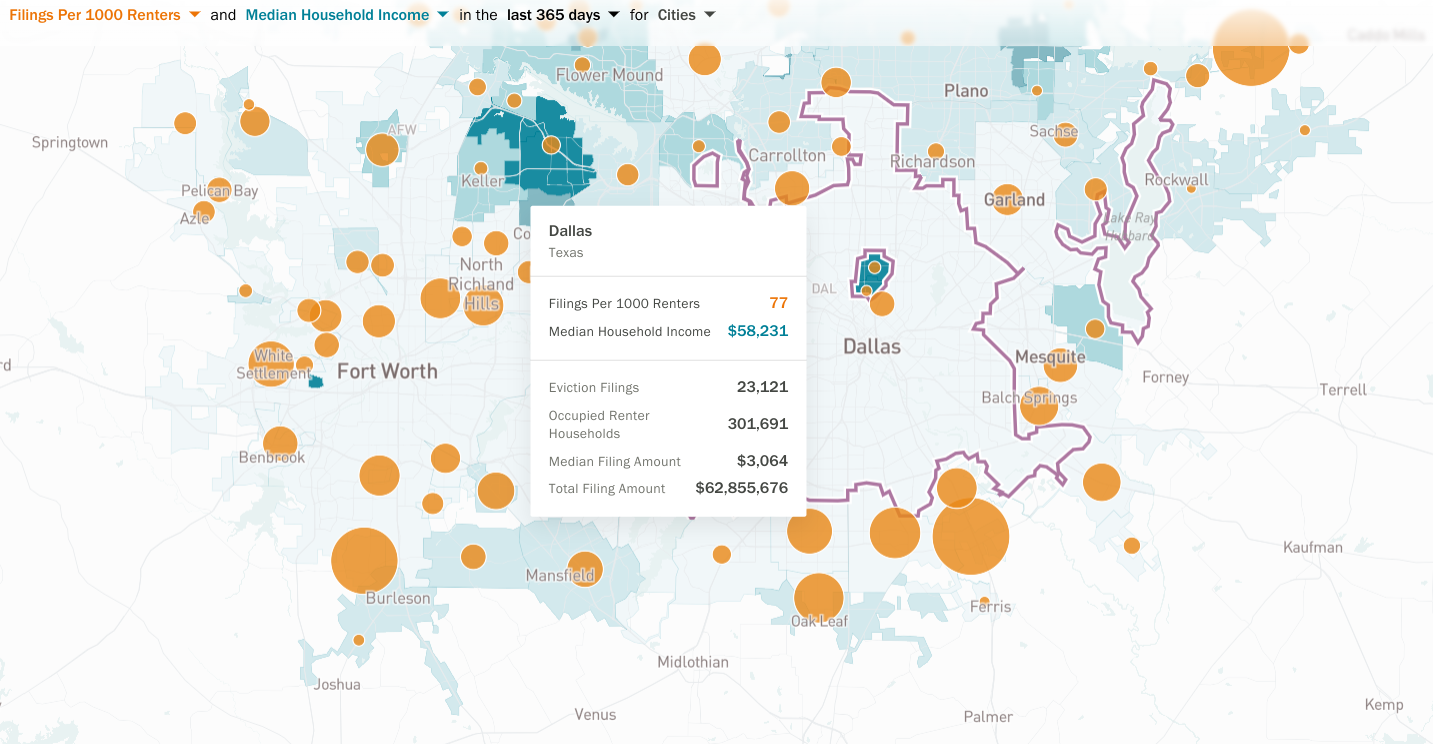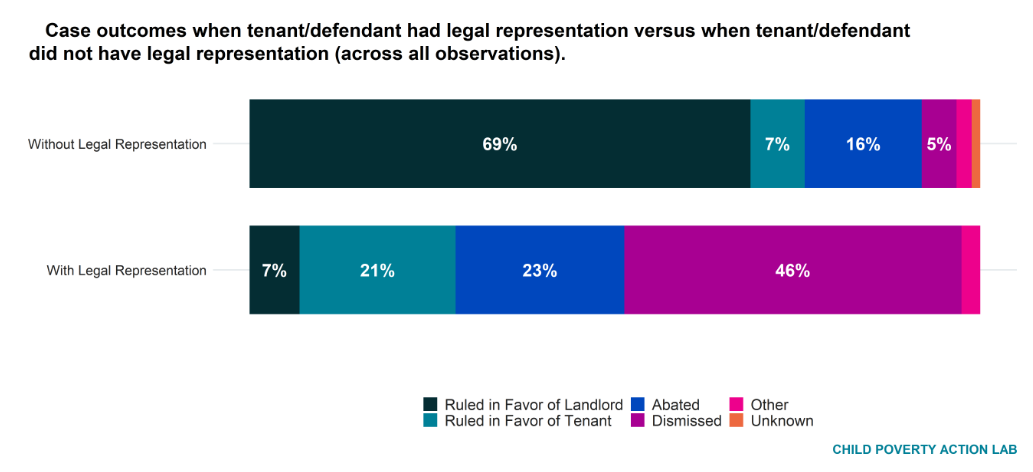Wednesday’s City Council meeting was a reminder of how the COVID-19 pandemic continues to impact the lives of Dallas residents.
Council voted to spend another $240,000 of its federal COVID-relief money with Legal Aid of NorthWest Texas, which will continue helping residents avoid eviction. The city previously awarded the organization a $500,000 contract. Federal relief dollars are drying up, but the economic challenges for low-income residents are still present, said Councilman Adam Bazaldua. Seventy-one percent of the 844 families who have received help are led by women.
“There’s a continued need for this eviction assistance because of COVID-19,” Bazaldua said. “And while we are seeing an increase in evictions over the last few years, there has been a decrease in available resources since the pandemic to assist residents.”
The Child Poverty Action Lab tracks evictions across North Texas. In the last year, 23,121 evictions were filed in Dallas—roughly 77 per every 1000 people. The average median income of the households facing eviction was $58,231. For comparison, the average median income for the city of Dallas is $58,200.
During the pandemic, evictions reached a crisis level. The city of Dallas enacted an ordinance that gave tenants facing eviction more time to prove that COVID prevented them from paying rent. (By 2023, the city had crafted a more permanent ordinance, but the passage of HB 2127, the so-called “Death Star” bill that stopped cities from allowing tenant protections beyond state law, may hamper enforcement.) The city used federal dollars for a relief fund that spent at least $60 million to help tenants pay back and prospective rent.
This newest disbursal of cash is to help tenants work within the legal system to avoid evictions by educating them on their rights and the resources available to them. It will also help with attorney fees. Councilman Paul Ridley pointed out that people without a lawyer at eviction proceedings have a success rate “in the single digits,” while people who have a lawyer get to remain in their homes 70 percent of the time. Lawyers help make sure that justices of the peace and landlords are following state law.
Ridley’s statistics nearly align with a recent report on evictions by CPAL that deployed 16 SMU Law student volunteers to observe 1,277 cases in the county’s justice of the peace courtrooms. The report found that the overwhelming majority of eviction cases were related to nonpayment of rent. It also found that tenants appeared before the court to argue their cases less than half the time, while landlords appeared almost all the time. When the tenant did attend the hearing, cases were decided in the landlord’s favor more than half the time. When the tenant had a lawyer, that number dropped to 7 percent.
In Dallas, both the Dallas Eviction Advocacy Center (DEAC) and Legal Aid of Northwest Texas have been working to ensure tenants are represented in eviction proceedings. Legal Aid became an official partner of the city during the pandemic, and DEAC registered as a legal nonprofit in 2021.
“When tenants walk into a courtroom with a lawyer, they win a lot. When they walk in without a lawyer, they lose almost every time,” DEAC founder Mark Melton told a City Council committee in 2022.
As federal COVID relief funds dry up and state legislators hamstring efforts to improve tenant protections, cities like Dallas are turning to programs that will slow evictions and keep more people in their homes. “It’s even more resources to get them out of being unhoused,” Councilman Omar Narvaez said.
“This effort … I believe, will pay huge dividends in avoiding evictions for those who are living paycheck to paycheck and would otherwise become homeless,” Ridley said.
Author









